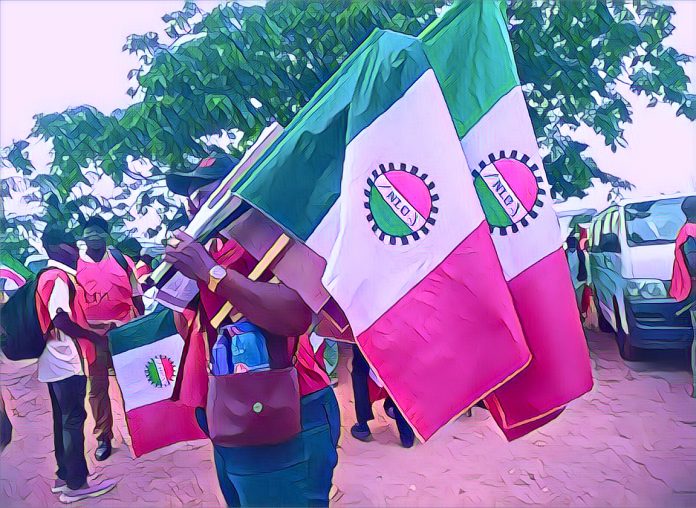The Nigerian government has urged the Nigeria Labour Congress (NLC) to cancel its scheduled nationwide protests, citing a court order that restrains the union from taking any industrial action.
The NLC announced a two-day national protest on February 27 and 28, 2024, to express its dissatisfaction with the economic situation in the country and demand better policies from the government.
However, in a letter addressed to the counsel for the NLC, Femi Falana, (SAN) dated February 23, 2024, the Attorney-General and Minister of Justice, Lateef Fagbemi, (SAN) reminded the union of a pending interim injunction granted by the National Industrial Court in 2023, which bars the NLC and the Trade Union Congress (TUC) from embarking on any strike or protest over fuel price hike and other related issues.
Fagbemi argued that the planned protest was in clear violation of the court order and amounted to contempt of court. He also said that the government had substantially complied with the memorandum of understanding signed with the NLC in 2023 and urged the union to engage more with the government to resolve any outstanding matters.
The letter read in part:
“A cursory perusal of the above press release clearly shows that the planned protest is premised on or connected with alleged non-implementation of the 16-point agreement reached with the Federal Government on October 02, 2023, consequences of the hike in the price of PMS, and other associated issues. It is therefore safe to assert again that the proposed cause of action by NLC is targeted at achieving objectives or promoting issues connected with a hike in fuel price and consequential matters of palliative workers’ welfare, and associated government policies.
You may wish to note that the foregoing issues or objectives are at the core of the pending case before the National Industrial Court. Upon the submission of grievances to the court, parties in the suit cannot resort to public protests over the same issues, as such conduct amounts to gross contempt and affront to the institution of our courts of law.
Therefore, the proposed nationwide protest action in all ramifications is in clear violation of the pending interim injunctive order granted in Suit No: NICN/ABJ/158/2023-Federal Government of Nigeria & ANOR V. Nigerian Labour Congress & ANOR on June 5, 2023, restraining both NLC and TUC from embarking on any industrial action or strike of any nature.”
No Response from NLC
The NLC has not responded to the letter from the government as of the time of filing this report. The union’s spokesperson, Benson Upah, did not answer calls or reply to messages sent to his phone. The NLC secretary, Emmanuel Ugboaja, also did not pick up his calls.
The NLC president, Ayuba Wabba, had earlier said that the protest was not a strike but a peaceful expression of the workers’ grievances. He said that the protest was aimed at drawing the attention of the government and the public to the worsening economic situation in the country and the need for urgent intervention.
Wabba said that the workers were suffering from high inflation, devaluation of the naira, increase in electricity tariffs, fuel price hikes, and insecurity. He also accused the government of reneging on its promises to implement the 16-point agreement reached with the NLC in 2023, which included the provision of palliatives, review of the minimum wage, and social dialogue.
Mixed Reactions from Nigerians
The planned protest by the NLC has elicited mixed reactions from Nigerians, who are divided over the merits and demerits of the action. Some Nigerians have expressed support for the protest, saying that it is a legitimate way of expressing dissatisfaction with the government’s policies and demanding better living conditions. They also argued that the court order was an infringement on the fundamental right of the workers to peaceful assembly and protest.
However, some Nigerians have opposed the protest, saying that it is ill-timed and counterproductive. They argued that the protest would disrupt economic activities, cause hardship for the masses, and worsen the security situation in the country. They also urged the NLC to dialogue with the government and seek alternative ways of resolving the issues.
As the date for the protest draws near, many Nigerians are hoping for a peaceful resolution of the impasse between the government and the NLC. They are calling on both parties to respect the rule of law, avoid violence, and seek the best interest of the nation.
Source: Punch



